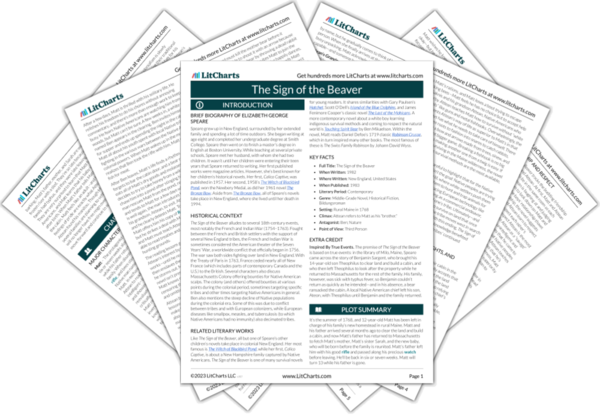As far as Matt is concerned, being called Attean’s brother and being given the dog is the ultimate show of respect. Thus, Matt knows he can’t just accept this without reciprocating. While getting the watch from his father represented the hope that Matt would come of age over the summer, passing it on to Attean represents Matt’s final coming-of-age. He recognizes that the watch itself isn’t the important part; rather, it’s knowing that he must do the right, good thing, even if it’s hard and won’t make sense to his father. Attean, meanwhile, knows that being a good friend means accepting the watch, even if he doesn’t strictly need it as a tool.
